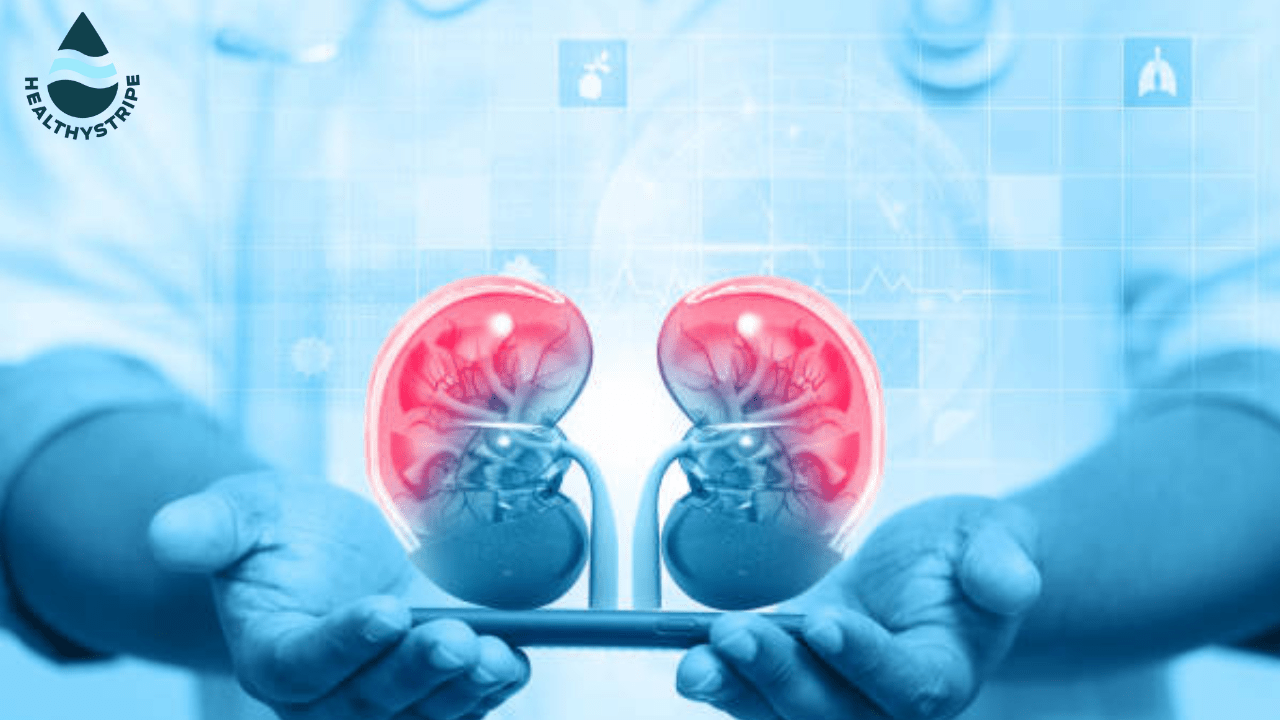Dry Throat: Causes, Treatments, and Prevention You Should Know

Dryness of your mouth, itching along with a prickly feeling in your throat are all commonly presented symptoms of dry throat. How often have you felt like you can’t speak when you are about to give a presentation? Or felt like your throat is suddenly feeling thirsty after a spicy meal? If you relate to these situations, you are most probably having a dry throat. Dry throat can be of varied etiology and dealing with a dry throat can be extremely uncomfortable. It can also adversely affect the quality of your sleep. Now that we have addressed the elephant in the room let’s talk about the probable causes, symptoms, and treatment options for dry throat.
[lwptoc title=”Table of Contents”]
Causes of Dry Throat
Dryness of the throat is a common presentation and can be caused by a wide range of factors varying from dehydration to tonsillitis. Let’s discuss the etiology in detail.
- Dehydration– One of the chief presentations of dehydration is thirst and dryness of mouth and throat. Dehydration is a condition where your body is not having enough water. Therefore our body tries to compensate by reducing fluid output. So your saliva production is reduced, your urine is more concentrated and you feel fatigued, dizzy, and suffer from dry throat and mouth. Furthermore, air humidification which happens in the lungs is also reduced due to lower body water content which aggravates the condition.
- Occasional or Permanent mouth Breathing– Mouth breathing is usually noticed in individuals suffering from sinusitis, allergies, nasal blockage due to deviated septum or obstructive sleep apnea. People who tend to breathe from their mouth instead of their nose tend to suffer from a dry throat. Habitual mouth breathers also tend to have similar problems. Studies reveal that these patients also suffer from high caries index, halitosis or bad breath as well as daytime lethargy, altered occlusion, and snoring.
- Allergies– Nearly 40% of the world’s population suffers from allergies. It can be seasonal, food or dust allergy or genetic in etiology. Allergies cause throat and nasal passage congestion along with dry mouth.
- Cold – Common cold or influenza or hay fever can result in a blocked nose, sneezing coughing and nasal congestion. The blockage forces you to breathe from an alternate passage aka your mouth which causes the oral mucosa to dry up and cause soft tissue as well hard tissue pathologies.
- Acid Reflux Disorder or GERD – Patients especially after cholecystectomy for gallbladder removal complain of acid reflux. The symptoms usually consist of heartburn, difficulty in swallowing, dry cough, hoarseness in voice, and sour burps.
- Sjogren Syndrome – it is an immune disorder characterized by dry eyes and dry mouth. Patients suffer from corneal ulcers, infections, halitosis, and oral ulcers along with dry mouth and difficulty in swallowing.
- Streptococcal infection– Streptococcus pyogenes is notoriously known for causing swollen tonsils, fever, skin rashes, nausea, vomiting, and body aches along with dry throat.
- Tonsillitis– Tonsils are located at the back of our throat and are responsible for immune reactions. Tonsillitis causes swollen tonsils along with signs of fever, husky voice, headache, and bad breath. All these symptoms together result in dry mouth and throat.
- Mononucleosis Kissing disease– As romantic as it sounds, it surely doesn’t feel so. Commonly affecting the teenage population this E-B-V ( Epstein-Barr virus ) disease presents with fever, swollen lymph nodes, armpits, headache, fatigue, muscle weakness, night sweats, and inflammation of the tonsils. It typically lasts for 4 weeks but can cause dry throat and extreme difficulty in swallowing.
- Laryngitis– This Inflammatory disorder of the larynx or the voice box is usually viral in origin and cures within a few days. However, it affects voice and causes dry mouth and throat.
- Medications– In a recent study it was noted that drugs for pediatric use often cause dry mouth, throat, urine retention, constipation, and cardiovascular ailments. Even over-the-counter drugs like antihistamines, antidepressants, opioids, and anticholinergics can have an adverse reaction on salivary flow rate.
- Stress and Anxiety– Stress triggers adrenaline production that generally mimics the situation of danger. While in old times this necessary influence protected from animals and other dangers, with increasing workload has affected the salivary flow and digestion resulting in acidity, indigestion, constipation, dehydration, and dry throat.
- Depression– Studies show that emotional instability like stress, depression, and anxiety can cause reduced saliva production that causes dry throat and mouth.
- Snoring– Snoring irritates the throat causing inflammation and dryness. One must undergo a physical examination to determine if the snoring is causing a dry throat or if it’s the other way around.

Come on in for free!
Read, learn and become a better version of yourself by getting great trends on nutrition and wellness straight to your inbox.
Symptoms of Dry Throat
A dry throat itself is a symptom of various pathologies. However, if you are trying to understand whether you are suffering from a persistent dry throat, here are a few symptoms that might help you relate.
- The feeling of dryness with difficulty in speech and swallowing.
- Thick and ropey saliva
- Teeth sensitivity
- Mouth ulcers
- Halitosis
- Voice change and throat dryness with hoarseness of voice
- Fissured tongue
Diagnosis of Dry Throat
Studies have found that females are more prone to dry mouth due to the anatomical difference in the structure of the salivary gland. In the geriatric age group, however, it has been noted that dry throat is presented with other underlying health conditions. Radiation patients are also in the high-risk category for dry mouth. Diagnosis of the etiology of dry throat needs a complete physical examination and correlation with the history and presenting symptoms of the patient.
Dry Throat Treatment
- Staying hydrated– If you have the tendency to experience dry throat in the morning, it is most probably due to decreased saliva production at night. Well, our salivary flow is in sync with our circadian rhythm therefore the rate is lower at night. However, you can try cutting off dehydrating agents like alcohol or caffeine at bedtime to avoid dry throat.
- Gargling– Gargling with warm saline soothes the irritated throat. A study made in 2005 reported that people who regularly gargled had a lesser prevalence of dry throat and upper respiratory tract infections.
- Sucking on lozenges– These stimulate your salivary glands to secrete more saliva that can provide some relief to dry throat patients.
- Night-time humidifier– Humidifiers can be great at night in situations of mouth breathing or oro-pharyngeal pathway of respiration.
- Nasal decongestants– If you are suffering from allergies, viral infections, or cold this might unclog your nasal pathway and help you breathe better.
- Antihistamines– They are indicated in cases of allergic reactions or hay fever or asthma. It reduces inflammation and helps in restoring normal respiration.
- Corticosteroid nasal sprays– They have anti-inflammatory properties that help with allergies and congestion
Prevention of Dry Throat
- Stay hydrated: Drinking plenty of water and other fluids can help keep your throat moist and prevent dryness.
- Use a humidifier: Adding moisture to the air can help prevent dry throat, especially in dry or cold environments.
- Avoid irritants: Avoid smoking and exposure to other irritants like pollution, allergens, and chemicals that can dry out your throat.
- Practice good oral hygiene: Brushing your teeth and tongue, and using mouthwash can help keep your mouth clean and prevent bacterial growth that can cause dry throat.
- Avoid alcohol and caffeine: These substances can dehydrate your body, leading to dry throat and other symptoms.
- Limit mouth breathing: Breathing through your mouth can cause a dry throat, so try to breathe through your nose as much as possible.
- Manage acid reflux: If you have acid reflux, managing it with lifestyle changes and medication can help prevent dry throat caused by stomach acid irritating your throat.
- Treat allergies: If you have allergies, treating them with medication or avoiding allergens can help prevent dry throat caused by allergic reactions.
- Use throat lozenges or sprays: These can help lubricate your throat and prevent dryness.
By taking these preventive measures, you can reduce your risk of developing dry throat and other related symptoms, and maintain good overall throat health.
Conclusion
In conclusion, don’t let a dry throat dampen your spirits! By understanding the causes and implementing simple remedies, you can reclaim your comfort and well-being. From staying hydrated and using humidifiers to avoiding irritants and practicing good vocal hygiene, there’s a world of possibilities to keep your throat moisturized and healthy. So bid farewell to that pesky itch and embrace the soothing relief that awaits. Say goodbye to dry throat woes and hello to a harmonious symphony of vocal bliss. Take charge of your throat health and let your voice soar with confidence. Remember, a hydrated throat is a happy throat!
FAQs Related to Dry Throat
What are the complications of dry throat?
Although it may seem innocuous, the persistent dry throat can lead to complications such as difficulty swallowing, hoarseness, chronic cough, and even respiratory infections due to the lack of moisture and irritation of the throat lining. In severe cases, untreated dry throat can cause damage to the throat tissue, leading to chronic pain and difficulty speaking or breathing.
Is dry throat a sign of COVID-19?
While it may be due to COVID-19, dry throat can also be due to other factors such as dehydration, mouth breathing etc. If you suspect COVID-19, keep a watch for other symptoms like shortness of breath, fatigue, loss of smell or taste and get tested.
Can anxiety cause dry throat?
Yes, anxiety can lead to a dry throat due to the activation of the body’s stress response leading to the activation of hormones such as cortisol and adrenaline which reduce salivary secretion.
How long does a dry throat last?
A dry throat can last from a few days to a few weeks depending on the cause, swiftness of treatment, and presence or absence of aggravating factors. In rare cases, it may be persistent and last for a long period of time.
What to drink for dry throat?
When experiencing a dry throat, it is crucial to drink fluids that can help alleviate the discomfort. Water is the best choice for rehydrating and moistening the throat but you can also opt for warm liquids like tea or broth. Try to avoid caffeine and alcohol since they aggravate the condition.
How to get rid of dry throat at night?
The dryness of throat during sleep can be extremely irritating. You can opt for humidifiers, saline nasal sprays and stay hydrated to avoid nighttime dry throat. You can also try elevating your head and cutting off on alcohol and caffeine if you are still suffering from it.
Can a dry throat be serious?
While a dry throat is typically a temporary and minor issue, it can sometimes indicate an underlying problem or have more serious implications like susceptibility to infections, vocal strain and hoarseness, sleep disturbances, oral health complications as well as underlying conditions like Sjogren syndrome.
How can I relieve a dry throat?
There are many simple ways to relieve a dry throat. Stay hydrated by drinking plenty of water or using a humidifier. Sucking on lozenges, gargling with salt water, avoiding irritants, and using throat sprays or drops can all help relieve a dry throat.







